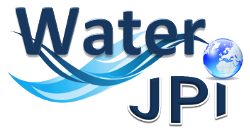Second Alignment Workshop
A workshop on Alignment was held on the 19 November 2015 in Paris.
At the November workshop Dorri te Boeckhorst (Wageningen Univ and Research centre, NL) presented the aims and the structure of the FACCE-JPI, as well as the alignment activities they developed. She underlined the important need to be selective and give priorities as well as the lack of understanding on what alignment is.
Caroline Lesser (INRA, France) presented the CSA ERA-LEARN2020 which is a learning and support platform for public-to-public (P2P) partnerships. One of the Tasks under this CSA aimed to define and identify the typology of alignment. Based on the work done by the Groupe de Programmation Conjointe (GPC) in 2014, the three main objectives of the typology are to:
- develop the meaning of alignment and how to implement it;
- map and categorise alignment actions or instruments currently in use; and
- identify strengths and weaknesses of different alignment actions or instruments.
Caroline presented the workshop with the typology that was developed showing 30 different actions (structured under twelve categories) to facilitate alignment at different levels and the participants discussed the relevance of each to the Water JPI.
A questionnaire on alignment (led by EPA) was launched in August 2015. Of the twenty four solicited countries, twenty two completed and returned the questionnaire. Padraic Larkin (Water JPI Co-Chair) presented key messages arising from the survey and these were detailed and analysed during this second Water JPI Workshop on alignment.
Following the workshop, a list of recommendations and priority actions for the Water JPI at programme and national levels were made and presented to the GB members:
Short Term (in the next 6 months)
- Translate the non-technical vision document into the native language of each member states
- Disseminate the public friendly versions of the SRIA 2.0 in an effective manner at EU and National levels (in native languages) for different audiences
- Prepare policy relevant flyers on the Water JPI for water directors and managers
- Use mid-term meeting/ERA-NETs of those organisations involved in the pilot call as opportunities to develop wider engagement
Medium Term (in the next 2 years)
- Arrange a meeting of research funders in member states to explain the work of the Water JPI
- Improve contacts with water economic sector (e.g. WssTP) and, where possible, create clusters to discuss and generate new research topics with SMEs and innovators (along the supply-chain)
- Consider all relevant actions related to the EU Water Framework Directive and any associated issues related to climate change
Long Term (over next 5 years)
- Help the countries without a national SRIA to define priorities for water research
- Develop mechanisms to gather and respond to wider national level RDI perspectives
- Upgrade the Water JPI SRIA as the European Agenda (Programme Committee level)
See the contributions of ERA-LEARN2020 by Caroline Lesser and FACCE-JPI by Dorri te Boekhorst.
